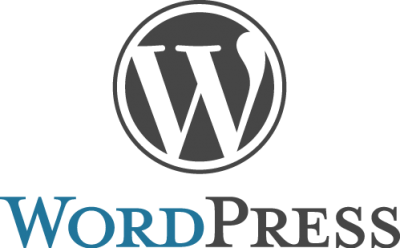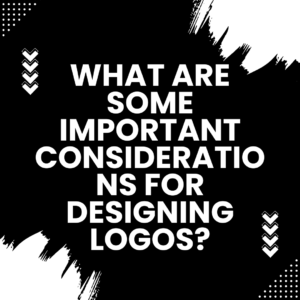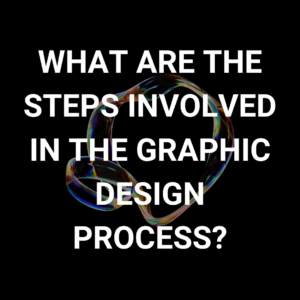What Is WordPress?

WordPress Is a Free and Open-source Tool for Building Websites.
WordPress Is a Php-based Content Management System (Cms) That Uses a Mysql Database on a More Technical Basis.
In Layman’s Terms, WordPress Is the Most User-friendly and Efficient Blogging and Website Creator Available Today.
WordPress Is a Fantastic Domain Portal With a Wide Range of Websites.
WordPress Is a Robust Cms That Can Be Used for Blogging and E-commerce to Enterprise and Portfolio Websites.
WordPress Is a Perfect Choice for Both Big and Small Websites Because It Was Designed With Accessibility and Functionality in Mind.
WordPress website?
Any Website That Uses WordPress as Its Content Management System Is a WordPress Website (Cms).
WordPress Powers Both the Website’s Backend (the Gui From Which a User Logs in to Make Changes or Add New Content) and Its Frontend (the Visible Part of the the Website That Your Visitors See on the Web).
Here Are a Few Examples of the Kinds of Websites That Can Be Created With WordPress:
Blog – a Blog Is a Form of Website Where You Can Share Your Opinions, Photographs, Feedback, Tutorials, Recipes, and So Much More.
The Most Recently Updated Material Is Normally Shown First on Blogs.
E-commerce Website – an E-commerce Website Helps You to Sell Products or Services Electronically and Accept Payments via an Online Payment Mechanism.
You Can Download and Install a WordPress E-commerce Plugin to Expand WordPress’s Default Features to Create an Online Shop on Your Website.
Company Website – Providing an Online Presence in the Form of a Website Would Help Many Companies.
WordPress Is an Ideal Choice if the Company Has a Website for Clients to Hear About Your Company and What You Have to Sell.
Customers Will Call You, Request a Quote, Set Up an Appointment, and Do Various Other Things.
Membership Website – a Subscription Website Helps You Hide Content Behind a Paywall or Need an Account Username.
Users Must Log in or Pay for Content to View Pages or Posts.
With the Help of External Plugins, WordPress Can Also Manage Membership Websites.
Portfolio Website – With a Portfolio Website Based on WordPress, You Can Show Off Your Artwork, Design Talents, and More.
A Forum Website Can Be a Useful Place for People to Ask Questions and Exchange Advice.
Many Forum Websites, Believe It or Not, Are Powered by WordPress.
E-learning Website – an E-learning Website Allows Students to Take Online Classes, Monitor Their Progress, Unlock Materials, and Many More.
You Can Deliver Online Courses From a WordPress Website Using a Special Kind of the Plugin Is Known as a WordPress LMS Plugin.
Wedding Website – With a WordPress-powered Wedding Website, You Can Share All the Photos of Your Special Day.
You Can Quickly and Efficiently Create a Website Using a Variety of WordPress Wedding Themes.
When It Comes to Customizing a WordPress Page, the Options Are Limitless.
WordPress Themes and Plugins May Have New Design Options as Well as Additional Features.
WordPress.org Is a Great Place to Find Free Themes and Plugins.
WordPress.com vs. WordPress.org
There Are a Few Things You Might Note if You’re Getting Started With WordPress.
First and Foremost, You Must Understand the Distinction Between WordPress.com and WordPress.org.
If You’re New to WordPress, the Distinction Between WordPress.com and WordPress.org Can Be Perplexing.
WordPress.com Is the Hosted Edition of WordPress, Where You Can Sign Up With a WordPress.com Account and Build a Blog or Website.
By Default, the Url or Domain of Your Website Will Contains the Word “WordPress,” Like Myblog.wordpress.com.
Upgrades Cost Money and Include a Personalized Domain, Google Analytics Integration, More Disk Space, the Option to Install Your Own Plugins and Themes, and Other Perks.
Automattic, a Company Founded by, Owns WordPress.com Matt Mullenweg, one of the Original WordPress Developers.
WordPress Applications Can Be Downloaded From Word Press.org and Installed on Your Own Server or Web Hosting Site.
Since WordPress Is Open-source, It Is Free to Read and Use.
To Use the WordPress.org Version of WordPress, You Must First, Obtain a Domain Name and Web Hosting From a Respectable Organization Such as Liquidweb.
If You Don’t Want to Install WordPress Yourself, Most Web Hosts Give a WordPress “Fast Install” or Done-for-you Download to Help You Start.
Automattic’s Non-profit Base Is WordPress.org.
How do I start using WordPress?
You’re Probably Wondering, “How Do I Get Started With WordPress?” WordPress Is, Once Again, Accessible. That’s Right – It’s Completely Open. In Just a Few Moves, You Will Get Started With a WordPress Website Today.
To Get Started With WordPress, You’ll Need a Couple of Things:
High-quality Web Hosting
A Web Address
The WordPress App That You Have Built on Your Website (Most Web Hosts Will Handle This for You.)
If You Want to Use the Hosted Version of WordPress Available on WordPress.com, All You Need to Do Is Sign Up for a WordPress.com Account to Get Started.
What is a WordPress Plugin?
A WordPress Plugin Is a Set of Extra Code That You Can Add to Your Website to Add New Content, Functionality, or Integrations.
Plugins Can Be Added to the WordPress Dashboard Through the Plugins Tab.
You Can Find a Free Extension on the WordPress.org Plugin List by Using the Built-in Search Tool.
Plugins Can Also Be Bundled as Zip Files, Which You Can Add to Your WordPress Dashboard Using the Plugins Menu Uploader.
What Is a WordPress Theme?
A WordPress Style Serves as the Website’s Architecture “Framework.” the Majority of WordPress Trends Include:
Your Site’s Overall Architecture (Its Look, Feel, and Style).
Font Types That Apply to the Entire Site
The Colour Scheme
Blog Article and Blog Archive Styles
Layouts for Pages (or Templates)
Widget Placement
Additional Stylistic Considerations
Some Themes Work Similarly to WordPress Page Builders, Enabling You to Make Your Own Page Templates Without Writing Any Code.
Themes Can Be Added to Your WordPress Dashboard Through the Appearance > Themes Tab.
You Can Find a Free Theme on WordPress.org by Using the Built-in Search Feature.
Themes Can Also Be Bundled as Zip Files, Which You Can Import to Your WordPress Dashboard Through the Appearance > Themes Menu Uploader.
A WordPress History!
B2/catalogue, Also Known as B2 or Catalogue, Was the Forerunner of WordPress.
As of May 2003, It Was Estimated That the B2/catalogue Was Built on Approximately 2,000 Blogs.
Michel Valdrighi, Who Is Now a Contributing Writer to WordPress Wrote It in Php for Mysql. About the Fact That WordPress Is the Official Successor, Another Initiative, B2evolution, Is Still in Active Progress.
WordPress First Emerged in 2003 as a Collaborative Collaboration Between Matt Mullenweg and Mike Little to Build a Fork for the Php Programming Language. An Acquaintance of Mullenweg’s, Christine Selleck Tremoulet Proposed the Term WordPress.
Six Apart Updated the License Terms for the Rival Movable Type Kit in 2004, Causing Many More Popular Customers to Migrate to WordPress.
The Open Source, Cms Marketshare Report, Concluded in October 2009 That WordPress Has the Most Brand Strength of Any Open-source Content Management System.
As of March 2021, WordPress Was Used by 64.5 Per Cent of All Websites With a Recognized Content Management System. This Represents 40.5 Per Cent of the Top Ten Million Websites.
We Have Brought for You Completely Free Graphic Design Important and Necessary Image Different Software Photoshop and Illustrator, Logo Design Vector, Business Card Design, Different Fonts, Premium Fonts Completely Free. Also Our Freelancers Very Seriously Spontaneously Give You the Vector File, Ai File, JPG, and PNG Graphic Model.
You Can Also Visit Our Facebook Links
If You Have Any Suggestions or Advice Please Contact Us.







